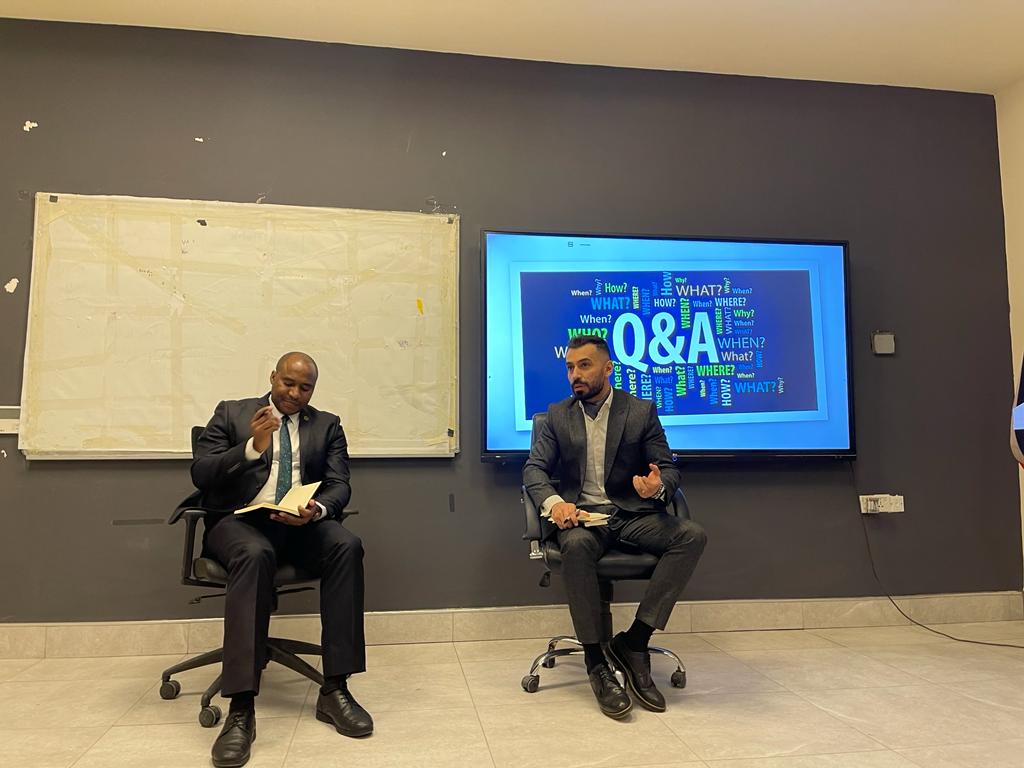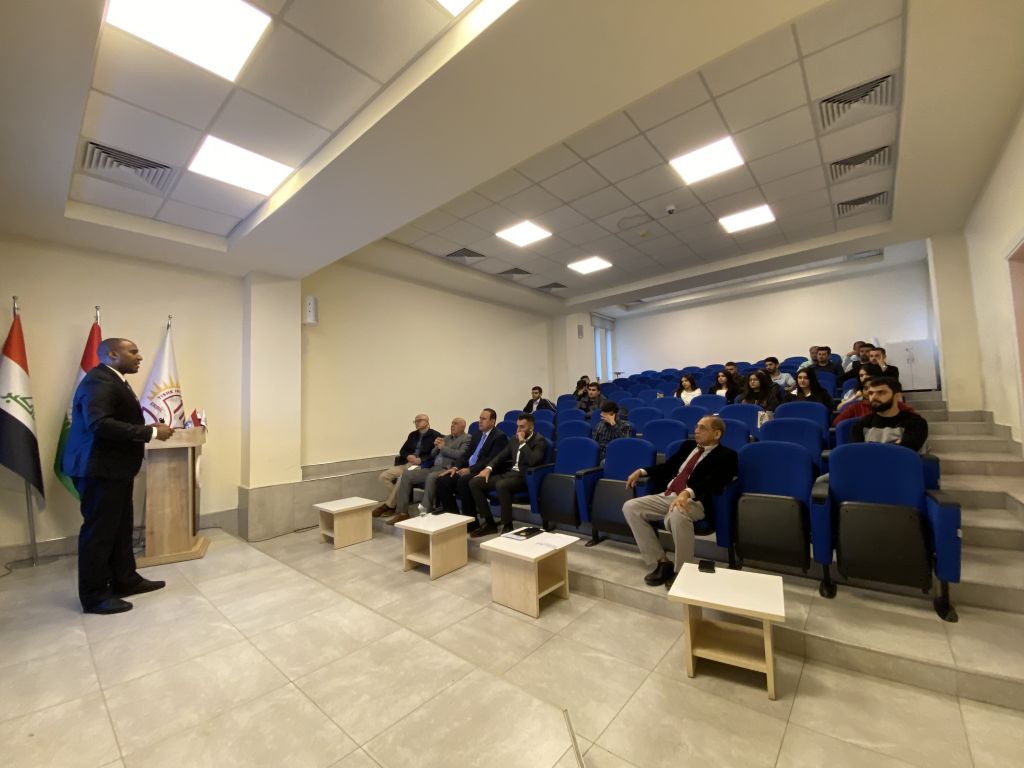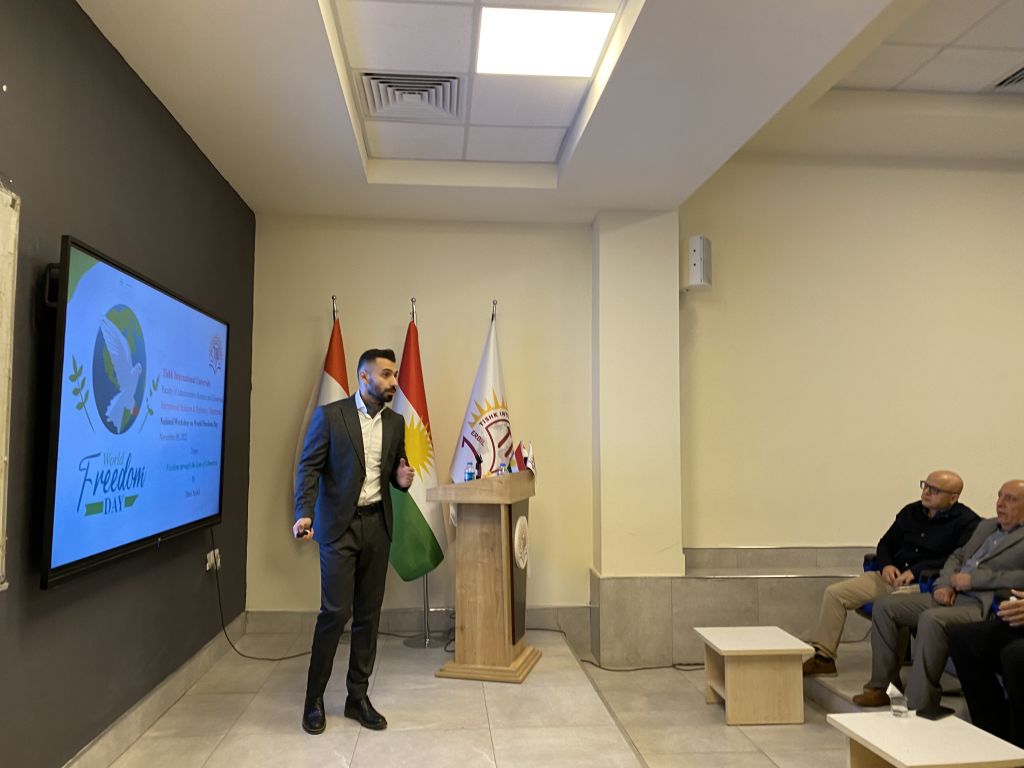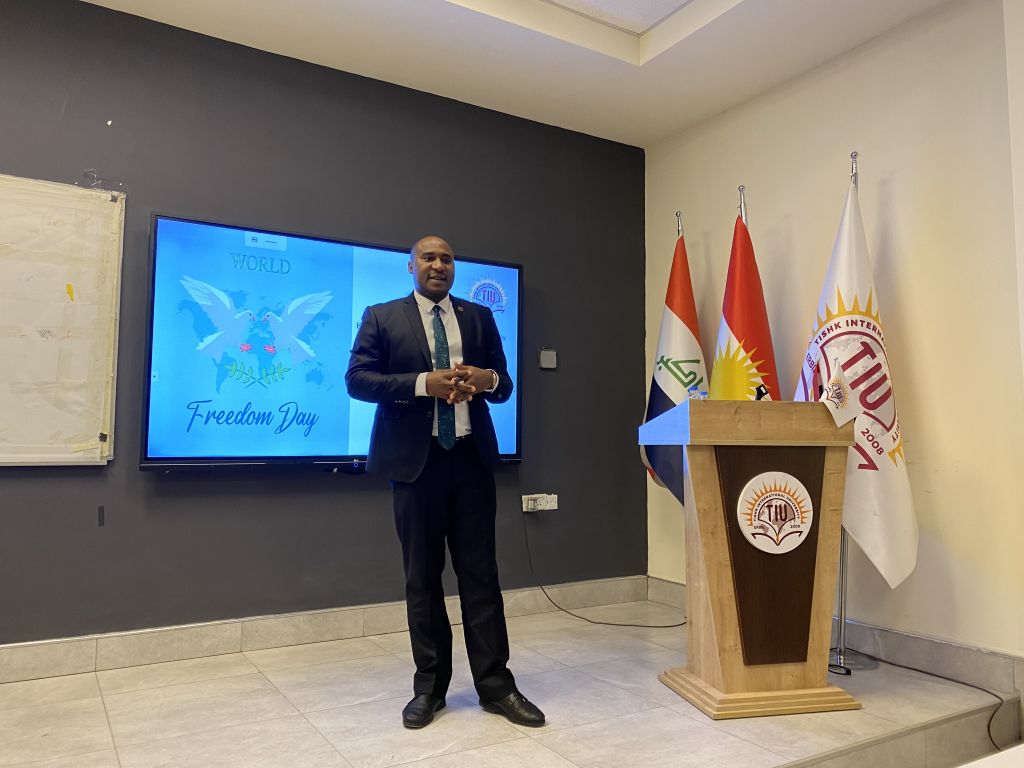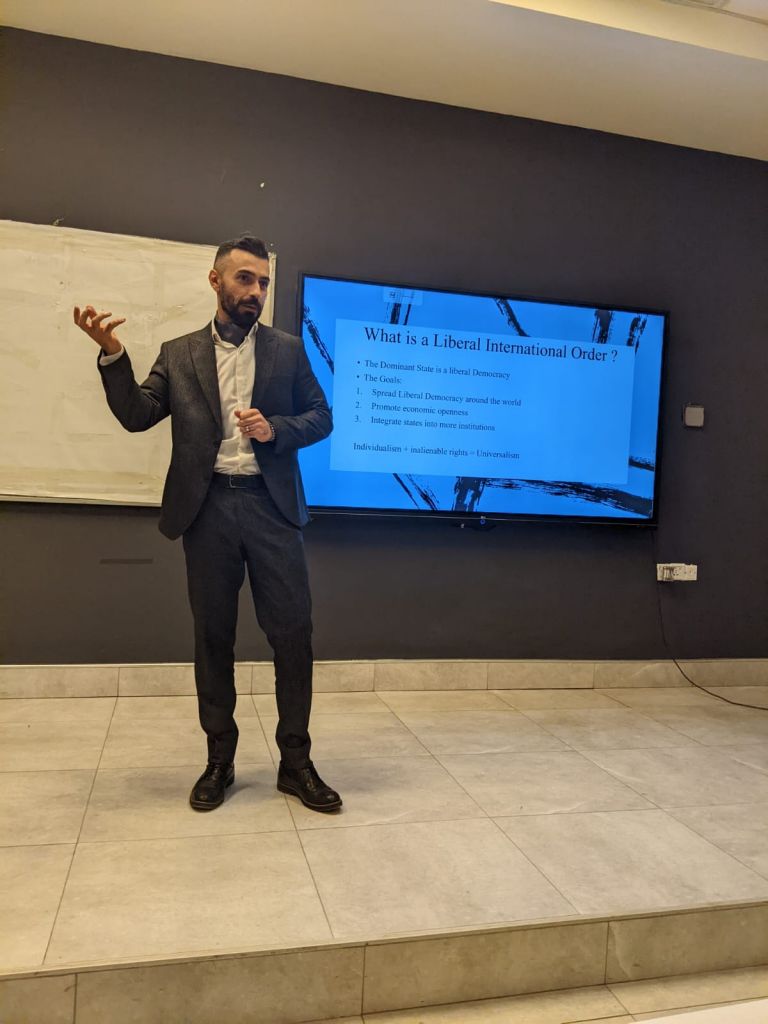Workshop on the World Freedom Day
The International Relations and Diplomacy Department organized a workshop on the occasion of World Freedom Day on November 9th, 2022. The World Freedom Day was declared first on November 9th, 2001, by the Former President of the United States of America, George W. Bush as a federal observance day to commemorate the fall of the Berlin Wall and the end of communist rule in Central and Eastern Europe in 1989. However, it was on November 9th, 2005, that President Bush proclaimed November 9 as the World Freedom Day. Two distinguished speakers, Mr. Dana Sajadi and Asst. Prof. Dr. Basiru Musa presented papers on Freedom through the Lens of Liberalism and Freedom and Human Development in the Global South: Neocolonial Africa in Focus respectively.
The first speaker conceptualized freedom and liberalism and explained the gap in the current international liberal order and called for reform so that people around the world, especially in the periphery or developing world could be free to determine their own future. He defined Freedom as the ability to make decisions for ourselves. We are free to think and speak our minds, to choose our own path in life, and to associate with anyone we want.
This allows us to create our own unique life. He defined Liberalism as a political and moral philosophy based on the moral argument that ensuring the right of an individual person to life, liberty and property is the highest goal of government. The main concern of liberalism is to construct institutions that protect individual freedom by limiting and checking political power.
The second speaker took the participants through the seven (7) parameters of freedom, which are: Electoral Process, Political Pluralism and Participation, Functioning of the Government, Freedom of Expression and Belief, Associational and Organizational Rights, Rule of Law and Personal Autonomy and Individual Rights, as given in the Freedom in the World Report, 2022, published by the Freedom House, Washington D.C., USA, and the state of freedom in Africa, where he explained that Africa is still not free because of neocolonial domination.
He also explained the correlation between freedom and human development as one that cannot be disproved, hence the need for its observance by all concerned stakeholders through the creation of an enabling environment for the people to live their lives on their own terms, provided they do not trample upon other people’s rights.
He also called for restructuring of global power relations to check the prevailing inequality and marginalization of the global south, especially Africa, Middle East, etc. He concluded by stating that Africa needs to check itself too to address many of the endogenous or internal factors impeding its development.
Both speakers responded adequately to the questions that they were asked by the participants during the Q & A Session.


